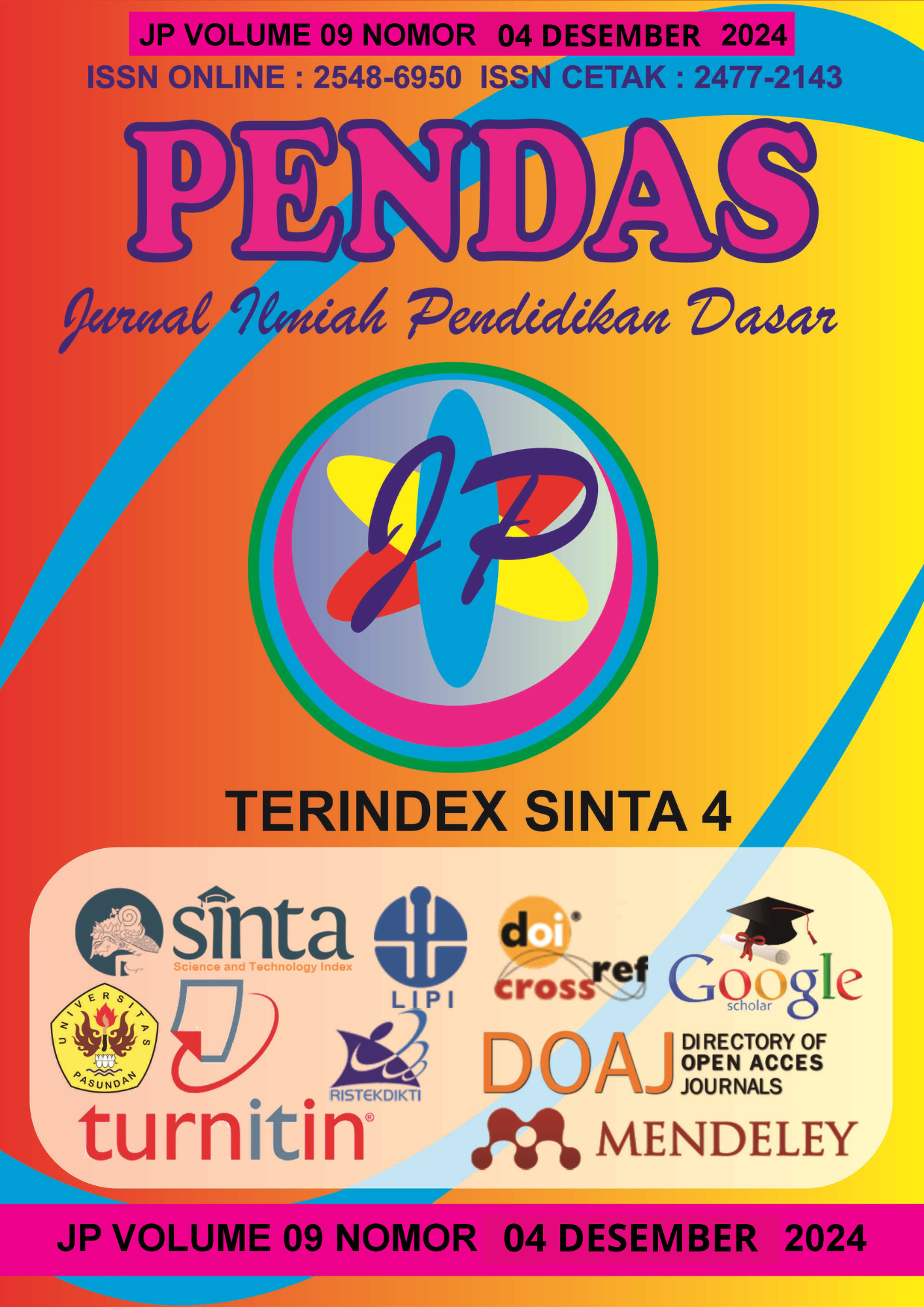GAMBARAN PEMULIHAN KEPERCAYAAN INDIVIDU DEWASA AWAL YANG MENGALAMI PERSELINGKUHAN DALAM HUBUNGAN ROMANTIS
DOI:
https://doi.org/10.23969/jp.v9i04.20637Keywords:
communication, behavioral change, infidelity, trust repairAbstract
Infidelity in romantic relationships often causes significant damage to trust between partners. Restoring broken trust requires substantial effort, a process known as trust repair. This study aims to explore the trust repair process in early adulthood individuals who have experienced infidelity in romantic relationships. Using a qualitative approach, in-depth interviews were conducted with five participants who experienced infidelity. The findings show that trust repair involves several stages, including acknowledgment of mistakes, apology, compensation, and forgiveness. Key factors supporting the success of trust repair include honest communication, consistent behavioral change, and commitment to restoring the relationship. This study contributes to a deeper understanding of how to repair trust broken by infidelity in romantic relationships.
Downloads
References
Alexopoulos, C. (2021). Justify my love: Cognitive dissonance reduction among perpetrators of online and offline infidelity. Journal of Social and Personal Relationships, 38(12), 3669-3691.
Arikewuyo, A. O., Eluwole, K. K., & Özad, B. (2021). Influence of Lack of Trust on Romantic Relationship Problems: The Mediating Role of Partner Cell Phone Snooping. Psychological Reports, 124(1), 348–365. https://doi.org/10.1177/0033294119899902
Azhar, A., Abbas, J., Wenhong, Z., Akhtar, T., & Aqeel, M. (2018). Linking infidelity stress, anxiety and depression: evidence from Pakistan married couples and divorced individuals. International Journal of Human Rights in Healthcare, 11(3), 214–228. https://doi.org/10.1108/IJHRH-11-2017-0069
Bagdasarov, Z., Connelly, S., & Johnson, J. F. (2019). Denial and empathy: Partners in employee trust repair? Frontiers in Psychology, 10(JAN). https://doi.org/10.3389/fpsyg.2019.00019
Corsini, A., Nugraha, W., Rahmi, H., Raya, J., Jl, ;, Perjuangan, R., Mulya, M., Utara, B., & Barat, J. (2021). Dinamika Resiliensi Pada Istri yang Menjadi Korban Perselingkuhan Suami. Jurnal Kajian Ilmiah, 21(1), 85–100. http://ejurnal.ubharajaya.ac.id/index.php/JKI
Creswell, J. W. (2014). Creswell, J.W. — Research design qualitative, quantitative, and mixed methods approaches (4th ed.) [2014].
Finkel, E. J., Simpson, J. A., & Eastwick, P. W. (2017). The Psychology of Close Relationships: Fourteen Core Principles. In Annual Review of Psychology (Vol. 68, pp. 383–411). Annual Reviews Inc. https://doi.org/10.1146/annurev-psych-010416-044038
Gerlach, T. M., & Reinhard, S. K. (2018). Personality and Romantic Attraction. In Encyclopedia of Personality and Individual Differences (pp. 1–6). Springer International Publishing. https://doi.org/10.1007/978-3-319-28099-8_717-2
Guerrero, L. K., & Bachman, G. F. (2010). Forgiveness and forgiving communication in dating relationships: An expectancy-investment explanation. Journal of Social and Personal Relationships, 27(6), 801–823. https://doi.org/10.1177/0265407510373258
Holmes, J. G., & Murray, S. L. (2014). A Steep Hill to Climb: Reconciling the Expanding Demands of Marriage. Psychological Inquiry, 25(1), 80–83. https://doi.org/10.1080/1047840X.2014.877811
Maharani, W., & Yundianto, D. (2024). Forgive, not forget: Exploring the influence of perception of dating infidelity to forgiveness behaviour in women. Jurnal Ilmiah Psikologi Terapan, 12(1), 1–7. https://doi.org/10.22219/jipt.v12i1.26094
Morrissey, L., Wettersten, K. B., & Brionez, J. (2019). Qualitatively Derived Definitions of Emotional Infidelity Among Professional Women in Cross-Gender Relationships. Psychology of Women Quarterly, 43(1), 73–87. https://doi.org/10.1177/0361684318806681
Norona, J. C., Olmstead, S. B., & Welsh, D. P. (2018). Betrayals in Emerging Adulthood: A Developmental Perspective of Infidelity. Journal of Sex Research, 55(1), 84–98. https://doi.org/10.1080/00224499.2017.1342757
Pramudito, A. A., & Minza, W. M. (2021). The Dynamics of Rebuilding Trust and Trustworthiness in Marital Relationship Post Infidelity Disclosure. Jurnal Psikologi, 48(2), 16. https://doi.org/10.22146/jpsi.60974
Rodriguez, L. M., DiBello, A. M., Øverup, C. S., & Neighbors, C. (2015). The Price of Distrust: Trust, Anxious Attachment, Jealousy, and Partner Abuse. Partner Abuse, 6(3), 298–319. https://doi.org/10.1891/1946-6560.6.3.298
Schultz, D. P., & Schultz, S. E. (2016). Theories of Personality (11th ed.).
Shrout, M. R., & Weigel, D. J. (2018). Infidelity’s aftermath: Appraisals, mental health, and health-compromising behaviors following a partner’s infidelity. Journal of Social and Personal Relationships, 35(8), 1067–1091. https://doi.org/10.1177/0265407517704091
Theodora, M., Sahrani, R., & Roswiyani, R. (2023). The mediating effect of forgiveness on the relationship between spirituality and psychological well-being in adults with history of childhood bullying. Psikohumaniora, 8(2), 241–258. https://doi.org/10.21580/pjpp.v8i2.17829
Veyanti, T. (2016). Pemaafan Pada Istri Sebagai Upaya Mengembalikan Keutuhan Rumah Tangga Akibat Perselingkuhan Suami. https://repositori.uma.ac.id/handle/123456789/88
Whisman, M. A. (2016). Discovery of a Partner Affair and Major Depressive Episode in a Probability Sample of Married or Cohabiting Adults. Family Process, 55(4), 713–723. https://doi.org/10.1111/famp.12185
Downloads
Published
Issue
Section
License
Copyright (c) 2024 Pendas : Jurnal Ilmiah Pendidikan Dasar

This work is licensed under a Creative Commons Attribution 4.0 International License.














































